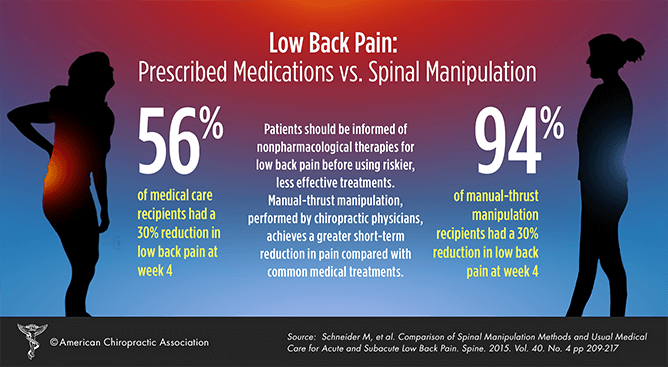Are Chiropractic Adjustments Habit-Forming? Identifying Reality From Misconception
Are Chiropractic Adjustments Habit-Forming? Identifying Reality From Misconception
Blog Article
Produced By-Brennan Wilder
You may have listened to that chiropractic care adjustments can cause a habit forming reliance, yet that's a common false impression. Several clients discover alleviation without developing any type of form of dependency. It is necessary to recognize truth function of these adjustments and exactly how they fit into your total health method. So, exactly what does the science state concerning chiropractic treatment and your well-being? Let's explore the realities.
Comprehending Chiropractic Care Adjustments and Their Function
When you think about chiropractic care adjustments, it's essential to recognize their objective and how they function. These changes intend to deal with imbalances in your spinal column and joints, advertising better positioning and motion. By using regulated pressure to particular locations, chiropractic specialists aid minimize pain, improve feature, and boost your general well-being.
Chiropractic care concentrates on your body's capability to heal itself, highlighting the link in between the spinal column and the nerve system. When your spinal column is aligned, it can reduce nerve interference, allowing your body to work ideally.
Routine adjustments may likewise assist avoid future problems, keeping you active and pain-free. Inevitably, chiropractic care adjustments offer to sustain your wellness, improve wheelchair, and boost your quality of life.
Common Myths Regarding Addiction and Chiropractic Care Care
Many individuals hold mistaken beliefs concerning the relationship in between chiropractic care and dependency therapy. One usual misconception is that chiropractic adjustments create an addiction-like dependency. Actually, please click the following page locate relief from discomfort and pain, but this doesn't mean they establish a psychological or physical dependency.
Another misconception is that chiropractic practitioners are simply trying to maintain you returning for more adjustments. The majority of chiropractics physician prioritize your wellness and go for long-term health as opposed to constant visits.
Additionally, Read the Full Content think chiropractic care can change conventional addiction treatments, but it needs to match, not replace, evidence-based treatments. Comprehending these myths can assist you make educated options about your wellness and wellness without falling target to misinformation.
The Scientific Research Behind Chiropractic Adjustments and Individual Experience
While some might examine the efficacy of chiropractic care adjustments, an expanding body of research supports their duty in easing discomfort and enhancing general function.
Studies indicate that back manipulation can lower pain from problems like reduced back pain, stress headaches, and neck discomfort. When you undergo chiropractic care, the modifications intend to restore proper alignment, enhancing your body's natural healing abilities.
Lots of clients report enhanced mobility and a higher sense of wellness after therapy. Additionally, the therapeutic connection you build with your chiropractic specialist can improve your experience, as they give personalized treatment customized to your needs.
This combination of clinical backing and favorable individual experiences assists clarify why chiropractic care changes are effective for several individuals seeking relief.
Final thought
In conclusion, chiropractic changes aren't habit forming; they're developed to boost your health and advertise proactive health maintenance. By debunking can a chiropractor help with tmj bordering dependency, it's clear that these treatments can offer significant relief without developing a cycle of dependency. Embracing chiropractic care as a corresponding strategy to standard therapies can lead to better wellness outcomes. So, if you're taking into consideration modifications, rest assured that they're about boosting your lifestyle, not producing a dependence.
